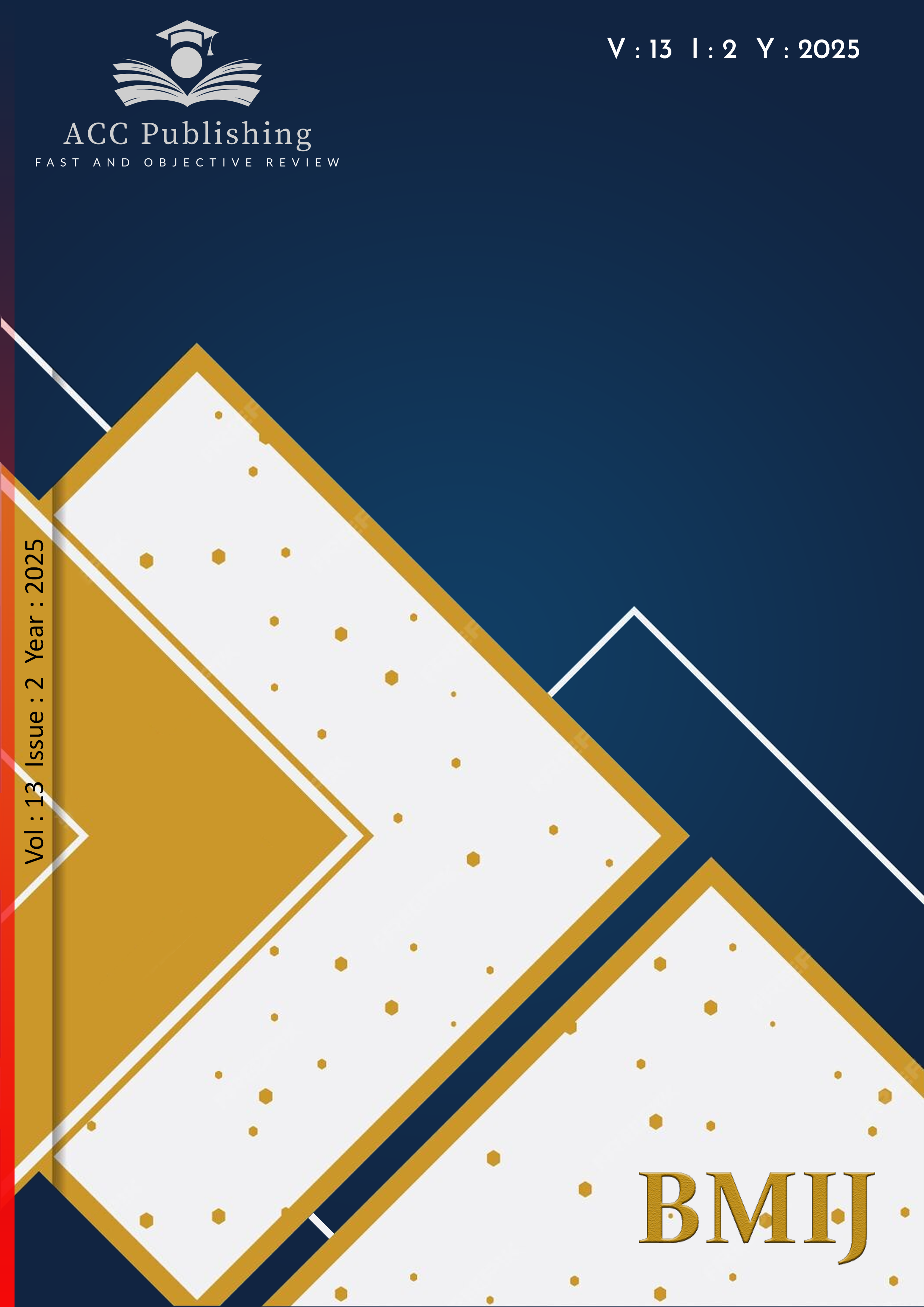The impact of motive leadership strategies on achieving total quality management requirements: Mediated by self-efficacy- an analytical study at Taif University
Professor, Department of Business Administration, College of Administration and Economics, University of Al-Qadisiyah, Iraq
Bio
Author Biography
Professor - Professor in the Department of Business Administration, College of Administration and Economics, University of Al-Qadisiyah
Associate Professor, Department of Management, College of Business Administration, Taif University, Saudi Arabia
Bio
Author Biography
Assistant Professor - Professor in the Department of Management, College of Business Administration, Taif University
Professor, Laboratory of Organizations Economics and Sustainable Development, University of Jijel, Algeria
Bio
Author Biography
Professor in the Faculty of Economic, Commercial, and Management science at the Laboratory of Organizations Economics and Sustainable Development, University of Jijel-Algeria
PhD. Student, Laboratory of Entrepreneurship and Innovation Strategies in the Business and Financial Environment, University of Jijel, Algeria
Bio
Author Biography
Doctoral student in the Department of Management sciences at the Laboratory of Entrepreneurship and Innovation Strategies in the Business and Financial Environment University of Jijel-Algeria imene.mekdade@univ-jijel.dz

Published 2025-06-25
Keywords
- Motive Leadership Strategies, Self-Efficacy, Total Quality Management
- Motive Liderlik Stratejileri, Öz Yeterlilik, Toplam Kalite Yönetimi
How to Cite
Copyright (c) 2025 Bushra Abdul Hamza - Samia Ayed- Nassim Hamouda- Imene Mekdade

This work is licensed under a Creative Commons Attribution-NonCommercial-NoDerivatives 4.0 International License.
How to Cite
Abstract
The current study aims to investigate the role of self-efficacy in explaining the relationship between Motivational leadership strategies and Total Quality Management (TQM) requirements. The study sample consisted of 103 faculty members at the College of Business Administration at Taif University. The study employed a questionnaire to collect data, which was prepared in light of existing measures from previous studies. The results were reached using the statistical program (SPSS v27) and the program (Amos.v. 26) to analyse the data and get a set of conclusions, the most important of which was confirming that self-efficacy has a role in explaining the nature of the relationship between Motive leadership strategies and the requirements of total quality management. And that Motive leadership strategies can support the implementation of total quality management requirements at the university in the field of study. The study concluded that Motivational leadership strategies and Self-Efficacy are important in the application of Total Quality Management.
References
- Abbas, B. A. H. (a). The effect of waste management on green production practices: The mediating role of green self-efficacy.
- Arifin, S., Darmawan, D., Hartanto, C. F. B., & Rahman, A. (2022). Human resources based on total quality management. Journal of Social Science Studies (JOS3), 2(1), 17–20.
- Ashfaq, F., Abid, G., & Ilyas, S. (2021). Impact of ethical leadership on employee engagement: Role of self-efficacy and organisational commitment. European Journal of Investigation in Health, Psychology and Education, 11(3), 962–974.
- Bass, B. M., & Riggio, R. E. (2006). Transformational Leadership. Psychology Press.
- Bandura, A., & Schunk, D. H. (1981). Cultivating competence, self-efficacy, and intrinsic interest through proximal self-motivation. Journal of Personality and Social Psychology, 41(3), 586.
- Bouranta, N. (2020). Does transformational leadership influence TQM practices? Total Quality Management & Business Excellence, 31(11-12), 1241–1264.
- Elmawi, F. A. (2022). The Reality of Applying Total Quality Management and Its Role in Promoting Sustainable Development of the Environment of Higher Education Institutions: "A Theoretical Review". Journal of Human Sciences, 21(2), 199–205.
- Fullan, M. (2010). Motion leadership: The skinny on becoming change savvy Corwin Press.
- Fullan, M. (2012). Motion leadership in action: More skinny on becoming change savvy Corwin Press.
- Junaidi, N., Effendy, N., & Junaidi, R. (2023). The Influence of Authentic Leadership, Self-Efficacy, and Organizational Citizenship Behaviour on Total Quality Management through Organizational Culture. Dinasti International Journal of Digital Business Management, 4(3), 555–568. Available online
- Msallam, A. A., Al Hila, A. A., Naser, S. S. A., & Al Shobaki, M. J. (2020). The reality of achieving the requirements of total quality management in university colleges.
- Northouse, P. G. (2025). Leadership: Theory and practice Sage publications.
- Nguni, S., Sleegers, P., & Denessen, E. (2006). Transformational and transactional leadership effects on teachers' job satisfaction, organisational commitment, and organisational citizenship behaviour in primary schools: The Tanzanian case. School Effectiveness and School Improvement, 17(2), 145–177.
- Stajkovic, A. D., & Luthans, F. (1998). Self-efficacy and work-related performance: A meta-analysis. Psychological Bulletin, 124(2), 240.
- Yzaguirre, D. A. (2017). The principal as leader: The relationship between motion leadership and campus accountability ratings in the state of texas.
- Zhou, X., Rasool, S. F., Yang, J., & Asghar, M. Z. (2021). Exploring the relationship between despotic leadership and job satisfaction: The role of self efficacy and leader–member exchange. International Journal of Environmental Research and Public Health, 18(10), 5307.
- Zu, X., Fredendall, L. D., & Douglas, T. J. (2008). The evolving theory of quality management: The role of six sigma. Journal of Operations Management, 26(5), 630–650.



